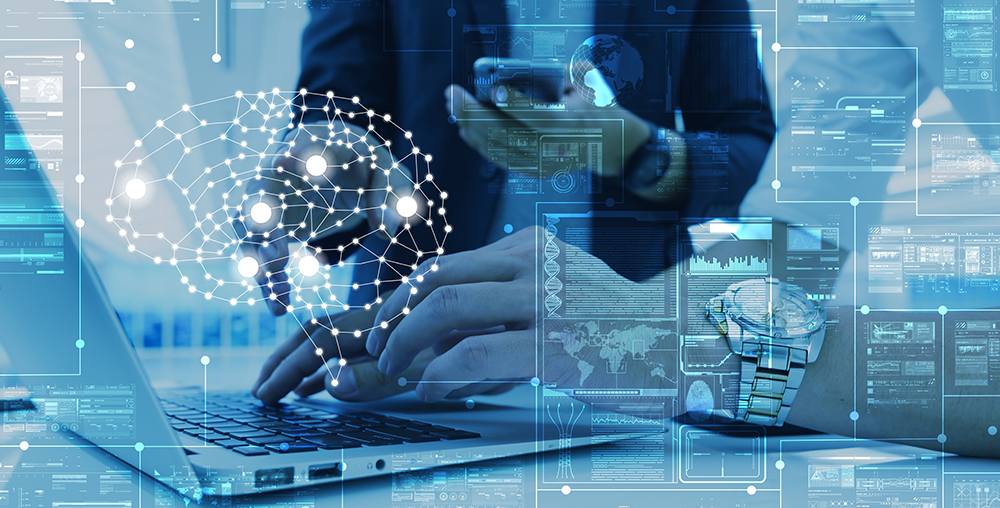
By Kim Hegeman
Artificial intelligence sounds very futuristic. But the fact is that organizations, even those outside of the technology space, can benefit from the use of artificial intelligence (AI). Many organizations are already using AI to improve efficiency.
“AI, as it’s being used in business right now, is still at mostly the foundational levels,” says Justin Sydnor, a professor at the Wisconsin School of Business. In business, most of what is labeled as AI today is actually machine learning – finding patterns in data and making well-founded predictions.
The biggest, and maybe most beneficial use, of these AI and machine learning tools for businesses is in prediction models. Prediction models pick up on tendencies and patterns of relationships between features of a situation and outcomes in past data. There are many instances in business where organizations use historical data on customers to predict what the next customer would likely be interested in.
Justin and Wisconsin School of Business Professor Daniel Bauer further explore prediction models and their use in business in CPED’s on-demand webinar, Demystifying Artificial Intelligence in Business.
Where Do You Start?
“The key thing to think about in your organization as you start potentially moving towards using AI is that all of the power of AI rests on historical data and patterns that have played out in the past,” says Justin. “Right now, artificial intelligence doesn’t generate new ideas, it picks up historical patterns.”
“Computers can increasingly do a range of complex tasks by mimicking these past decisions,” adds Daniel Bauer, Wisconsin School of Business Risk and Insurance Department Chair.
The first question to ask is where does your organization have recurring patterns where it could be valuable to make predictions for the purposes of scoring or forecasting? This is where prediction tools using AI and machine learning come into play.
You can also look at where your organization has repeatable tasks currently done by a person that could become more efficient if a computer were able to reliably complete those tasks.
Will AI Replace Humans?
As you’re looking into where AI and prediction tools can benefit your organization, the question always comes up, “Will computers take my job?” The answer, for the foreseeable future, is not really.
“AI is very likely to change work a lot, but it’s not necessarily going to replace work,” says Justin. “It’s going to replace some types of tasks, in particular things that involve a lot of routine pass-through of information. Those types of things don’t really need to be done by humans.”
But there still needs to be human involvement. In fact, AI may even create more jobs.
“Which tasks to prioritize, what the judgements and desires of the organization are, and how to monitor and set up these systems, all of that is going to create important new work,” Justin adds.
Businesses can use artificial intelligence and machine learning to increase efficiencies, make predictions that can influence sales and product selection, and prioritize customer needs. Your organization and teams do not need to be in the technology realm to reap the benefits AI has to offer in business.
You can learn more about how AI, machine learning, and data analytics can help your organization in Business Analytics for Data-Driven Leadership. By understanding the opportunities and business case for data-driven decision making, leaders will be able to gain deeper insights to inform organizational strategy.